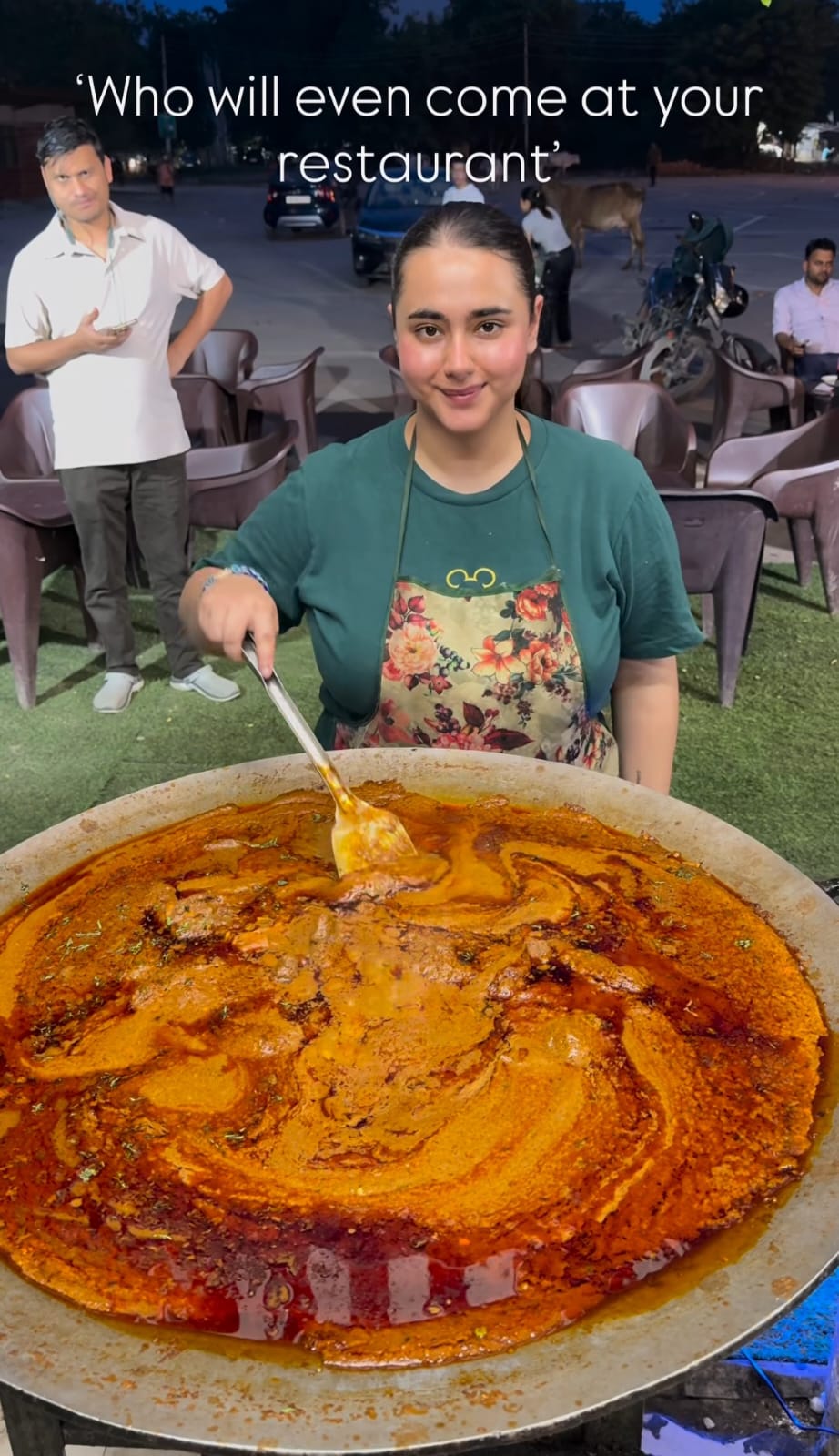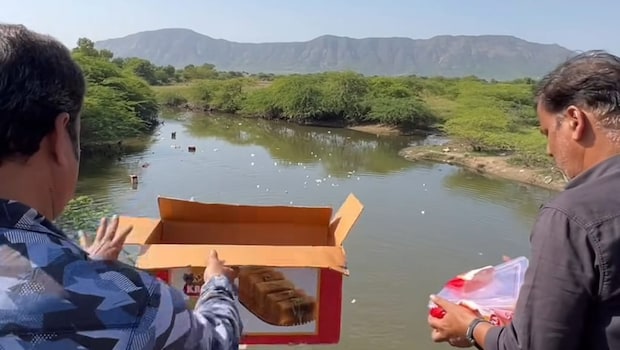A viral video reportedly showing food safety officials disposing of adulterated sweets into a river has sparked widespread criticism online. The incident, which reportedly took place in Ajmer, has ignited a debate on the need for environmentally responsible waste disposal practices, even when dealing with unsafe food products.
Video Of Adulterated Halwa Disposal Goes Viral
According to reports, the video, which has garnered over six million views, shows two men, identified as food safety officials, emptying large boxes of adulterated halwa directly into a river. The discarded batch is said to weigh more than 2,000 kilograms.
While authorities have been praised for seizing adulterated and unhygienic food items, their method of disposal has drawn sharp criticism for potentially harming the environment. Viewers have pointed out that dumping both the food and plastic containers into a water body contradicts basic environmental safety norms.
Public Outrage Over Disposal Method
Social media users were quick to react to the video, calling out the officials for what they described as an "irresponsible" act.
One viewer remarked that the authorities had "solved one problem by creating a new one." Others questioned why contaminated food was being disposed of in a river, arguing that such actions only contribute to pollution.
Many expressed disbelief that officials appeared unaware of the environmental damage this could cause, while a few suggested more responsible alternatives - such as recycling the packaging, or converting the food waste into fertiliser or sending it to a sewage treatment facility instead.
As of now, FSSAI has not issued an official statement regarding the incident.
Disclaimer: NDTV does not vouch for the claims made in the viral social media post.
What The Rules Say About Food Disposal
According to regulatory guidelines under the Food Safety and Standards Authority of India (FSSAI), seized or unsafe food items are to be disposed of preferably through incineration. Other methods - including composting, biogas generation, or controlled dumping - may also be used, depending on safety risks and official directives. Crucially, these processes must be environmentally friendly and carried out under official supervision in the presence of independent witnesses.
About Jigyasa KakwaniJigyasa finds her solace through writing, a medium she is exploring to make the world more informed and curious with every story published. She is always up for exploring new cuisines, but her heart comes back to the comforting ghar-ka-khana.







